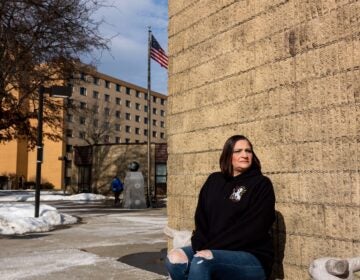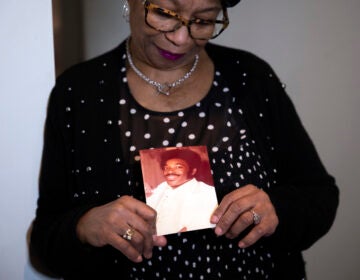ACLU sues Delaware for ‘deliberate indifference’ to medical care in prisons
The lawsuit cites numerous alleged examples of prisoners being denied care, including one man recently diagnosed with terminal cancer.

Sussex Correctional Institution (Del. Dept. of Correction)
Nearly two years after filing a lawsuit accusing Delaware’s Sussex County prison of brutalizing incarcerated men, the American Civil Liberties Union now alleges in federal court that the state’s correctional system has “systemically violated their duties to ensure adequate health care” statewide.
A lawsuit filed this week in U.S. District Court in Wilmington on behalf of three named prisoners and more than a dozen unidentified ones seeks class action status as well as monetary damages and an injunction to stop “unlawful and unconstitutional delays and denials of treatment.”
The defendants include current and former corrections commissioners and other top prison officials, as well as for-profit independent contractors that have provided medical care in the state’s four prisons since 2020. The contractors are Centurion of Delaware LLC and its Missouri-based former parent Centene Corp., and VitalCore Health Strategies, a Kansas-based company that took over the prisons’ health care contract in July.
The defendants individually and collectively “acted with callous and deliberate indifference to the health of incarcerated men and women, including by adopting customs and policies that delayed and denied needed medical care for serious medical conditions,” the lawsuit said.
“They significantly understaffed the correctional health care system and intentionally delayed and denied needed medical care. They utterly failed to supervise medical staff and failed to terminate incompetent staff known to have been engaged in past violations. Instead, they allowed [prisoners] to suffer.’’
The full lawsuit can be read at the bottom of this story.
Department of Correction spokesman Jason Miller said officials “cannot comment on pending litigation.” Centene, Centurion, and VitalCore did not respond to requests for comment.
Man with terminal cancer allegedly waited months for diagnosis
The lawsuit cites more than a dozen allegations by prisoners who claim they were “damaged by … deliberate indifference to their serious medical needs,” and highlights the case of 61-year-old Harry Samuel, who is serving a lengthy prison term at James T. Vaughn Correctional Center near Smyrna for assault and weapons offenses.
According to the ACLU filing:
Samuel began to bleed from his rectum and penis in late November and “immediately sought emergency care’’ from Centene/Centurion, but the medical staff “failed to provide any treatment.”
Samuel “repeatedly submitted ‘sick calls’ and grievances to no avail.” Around New Year’s Day, with the bleeding “getting worse,’’ he again sought care. About six days later, a physician assistant examined Samuel and “told him that he may have diverticulosis and prescribed over-the-counter fiber tablets and stool softener Colace. She did not prescribe any antibiotics.”
On Feb. 7, Samuel was bleeding “extensively,’’ so he collected “the clot of blood’’ and again sought emergency treatment.
A correctional officer and a fellow inmate took Samuel to the infirmary in a wheelchair, where he fainted and fell to the floor because of “extensive blood loss.”
But instead of assisting Samuel, “nobody reacted” for 10 minutes, while he “lay on the floor, bleeding profusely.”
He was taken by ambulance to Bayhealth Medical Center, where a doctor told him he needed to see a specialist and have surgery. Yet Centene/Centurion did neither, even though Samuel “continued to bleed profusely and experience pain.”
Finally, in July, after VitalCore took over the nearly $50 million annual prison health care contract, he underwent a bone scan and a colonoscopy.
Those tests, the lawsuit said, “revealed the meritless delays had resulted in terminal prostate and rectal cancer.’’
How did VitalCore doctors deal with the diagnosis of Stage IV cancer?
The ACLU says the company “advised Mr. Samuel that he was not going to be provided any treatment.”
Dwayne Bensing, the ACLU of Delaware’s legal director, calls Samuel’s story “heartbreaking” and says the delays and denial of treatment violate his Eighth Amendment right against “cruel and unusual punishment.”
Delaware’s system called ‘a race to the bottom’
The lawsuit also cites several other alleged examples of what the ACLU calls “systemic wrongdoing.”
Among the other examples:
- One man at Vaughn developed an inguinal hernia, a condition in which “soft tissue bulges through the abdominal muscles.” Though he was told he needed surgery, he never saw a specialist or had the operation.
- A man at Sussex Correctional Institution near Georgetown who had “burning pain in his penis and groin” was told he needed to see a urologist, but the consultation was delayed and then denied
- A Vaughn prisoner “suffered from severe brain damage, seizures, and heart issues after being badly beaten,’’ yet was refused “any care for his serious medical issues.”
- A man at Vaughn who needed oral surgery was taken to Christiana Hospital but could not get the procedure because prison officials had “misspelled his name and provided an inaccurate birthdate.” The prisoner never received the surgery.
The process of discovery and accessing prison medical records will show, the lawsuit said, that the state and its contractors “have shortened the lives of hundreds of incarcerated persons and caused unnecessary pain to hundreds of others.”
The ACLU also accuses the Department of Correction of failing to adequately oversee and monitor Centene/Centurion and VitalCore, even though state law mandates that they do just that.
“They failed to supervise the corporate defendants and failed to call for the termination of the contract for cause, as was merited by the systemic denial of specialized care and surgeries, and the pattern of meritless and lengthy delays in providing care,’’ the lawsuit said.
Their alleged indifference occurred while Centene/Centurion and VitalCore had a practice of “hiring, failing to supervise and retaining persons without the requisite competency in correctional medical services, including persons who had repeatedly violated the rights of those in custody.”
The lawsuit comes about a decade after the federal government released Delaware from a copious consent decree for inadequate prison health care. The 87-point agreement had stemmed from a finding of multiple constitutional violations and required dozens of improvements to the quality of health care for Delaware’s incarcerated men and women, which currently number about 3,500.
Bensing said the new filing makes clear that Delaware is still failing to provide humane health care in its correctional facilities.
“It really appears to be a race to the bottom,’’ the ACLU lawyer said. “Rather than having adequate health care be central to the bidding structure, really they attempted to find the least qualified and perhaps maybe the least expensive in the short term. But these delays and lack of access to adequate health care are really going to result in a much more expensive procedure as an end result.”
“The state has attempted to kind of wash their hands of the [prison] health care system. And so it’s just one terrible contractor overseen by prison administrators who aren’t doing their job.”
The separate lawsuit alleging abuse of prisoners is still working its way through the court system.

Get daily updates from WHYY News!
WHYY is your source for fact-based, in-depth journalism and information. As a nonprofit organization, we rely on financial support from readers like you. Please give today.






